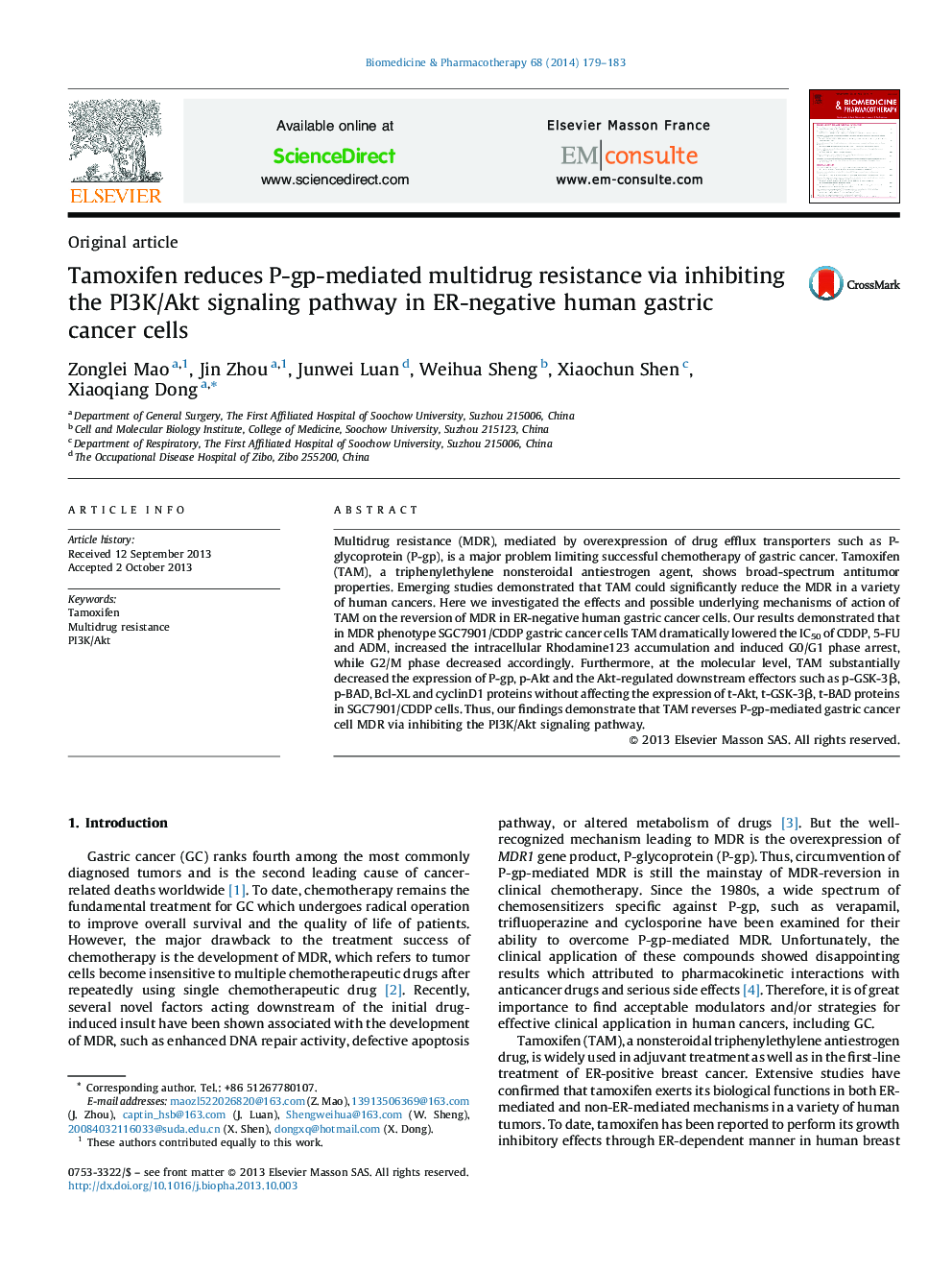| Article ID | Journal | Published Year | Pages | File Type |
|---|---|---|---|---|
| 2525044 | Biomedicine & Pharmacotherapy | 2014 | 5 Pages |
Multidrug resistance (MDR), mediated by overexpression of drug efflux transporters such as P-glycoprotein (P-gp), is a major problem limiting successful chemotherapy of gastric cancer. Tamoxifen (TAM), a triphenylethylene nonsteroidal antiestrogen agent, shows broad-spectrum antitumor properties. Emerging studies demonstrated that TAM could significantly reduce the MDR in a variety of human cancers. Here we investigated the effects and possible underlying mechanisms of action of TAM on the reversion of MDR in ER-negative human gastric cancer cells. Our results demonstrated that in MDR phenotype SGC7901/CDDP gastric cancer cells TAM dramatically lowered the IC50 of CDDP, 5-FU and ADM, increased the intracellular Rhodamine123 accumulation and induced G0/G1 phase arrest, while G2/M phase decreased accordingly. Furthermore, at the molecular level, TAM substantially decreased the expression of P-gp, p-Akt and the Akt-regulated downstream effectors such as p-GSK-3β, p-BAD, Bcl-XL and cyclinD1 proteins without affecting the expression of t-Akt, t-GSK-3β, t-BAD proteins in SGC7901/CDDP cells. Thus, our findings demonstrate that TAM reverses P-gp-mediated gastric cancer cell MDR via inhibiting the PI3K/Akt signaling pathway.
